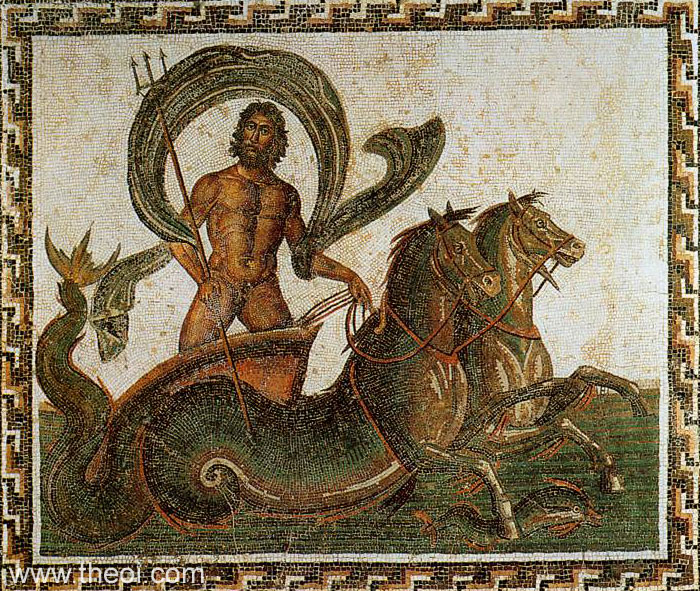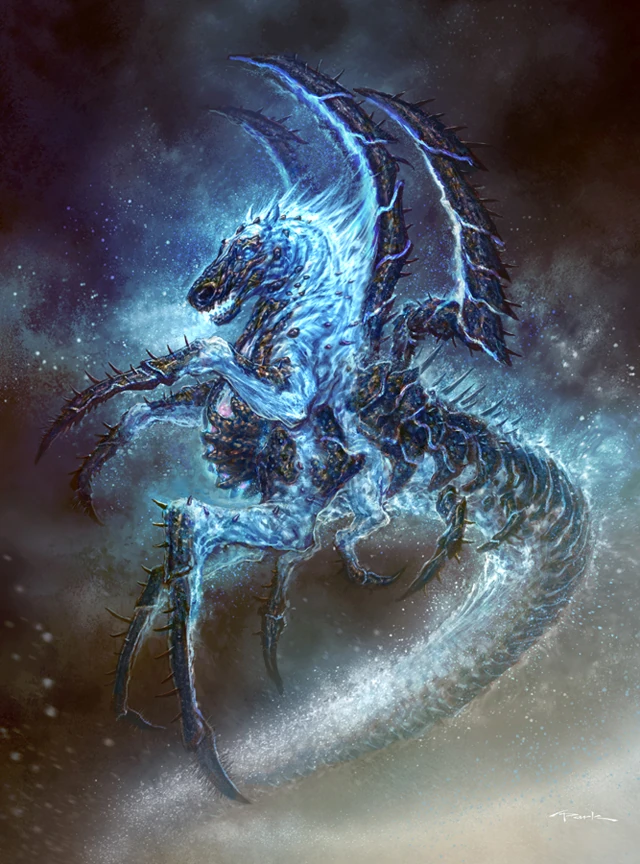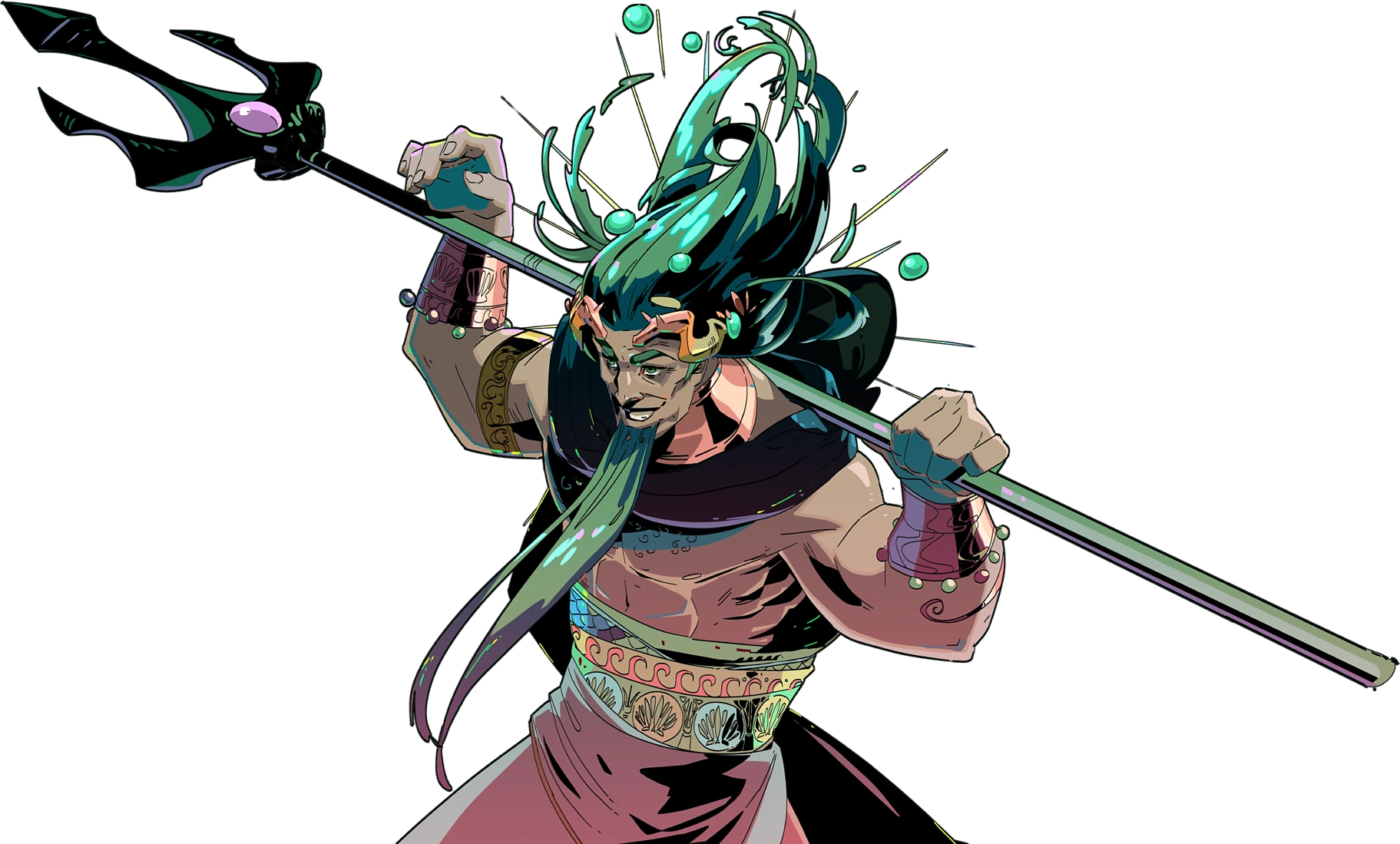Poseidon is the ruler of the sea, often called the 'Earth- shaker.' After Zeus, with his brothers and sisters, defeated the Titans and dethroned Cronus, Zeus, Poseidon and Hades drew lots for one of the three realms to rule. Zeus got the heavens and thus became the supreme ruler, Hades got the underworld and Poseidon got the sea. The god of the Mediterranean sea. His name seems to be connected with πότος (potos), πόντος (pontos), and ποταμός (potamos), according to which he is the god of the fluid element. 1 He was a son of Cronus and Rhea, whence he is called Kronios (Κρόνιος) and by Latin poets Saturnius. 2 He was accordingly a brother of Zeus, Hades, Hera, Hestia and Demeter,. Poseidon is the god of the sea. He has two brothers named Hades, the god of the underworld, and Zeus, the almighty god of the earth. He carries a trident, which is his main weapon, and is said to be the inventor of horses. Poseidon Myths & Legends The Greek God of the Sea, Earthquakes, Floods, Drought and Horses In Greek legends and myths the god Poseidon is quite a character. To cover all the various tales and stories he plays a part in would require a book of more than a few pages.


POSEIDON PAGE TWO
(continued from Page One)

Poseidonall About Myths Debunked

Myths About Poseidon Greek God

POSEIDON PAGE TWO
(continued from Page One)
Poseidonall About Myths Debunked
Myths About Poseidon Greek God
Once there was a dispute between Poseidon and goddess Athena as to who had patronage of the lands and cities of the area called Troezen. Zeus intervened before things got too ugly and ordered them to hold and share the city in common, avoiding further conflict.
Things did not work out as well for Poseidon during another disagreement with Athena, this time over the region of Attica. Both the gods wanted patronage of the mighty city, so they agreed to hold a public competition to determine the winner.
Poseidon struck a mighty blow with his Trident and a well of sea water sprung up near the Acropolis. Very impressive but not very practical.
Wise Athena planted an olive tree, her gift to the citizens. King Cecrops and the Olympians ruled that Athena's gift was more fitting (duh!) and thus she was granted patronage and the city was named Athens in honor of the great goddess.
Needless to say, Poseidon was livid. In retaliation he flooded Attica, causing great distress. Others claim that rather it was Zeus who adjudged Athens to Athena, and that Hermes expressly forbade Poseidon to flood the countryside.
In either case, at the shrine of Erechtheus in Athens, for a long time there remained preserved an olive tree and a pool of salt water as reminders of the epic judgment.
Poseidon set eyes on the Oceanid Amphitrite, daughter of Nereus and Doris, and wanted her as his wife. Distraught and unwilling, she ran away to Atlas, where she tried to hide from the god of the sea.
Enamored Poseidon would not be denied. The god of the sea dispatched many to look for her, among them a man named Delphin.
After much searching and wandering, Delphin located Amphitrite and managed to persuade her to marry Poseidon, convincing her that the god's love was sincere.
He delivered the beautiful maiden to Poseidon's palace and even took upon himself to organize a lavish wedding. In appreciation for his efforts, Poseidon placed the Dolphin among the constellations.
Poseidon could be generous, but he could also be vindictive, as witnessed by his flooding of Attica.
A righteous man named Hierax chose to devote himself to the goddess Demeter rather than to Poseidon, so the vengeful sea god unleashed a terrible sea monster against the Teucrians, Hierax's folk.
Another time, vain Queen Cassiopea of Ethiopia boasted that she was better and more beautiful than the Nereids, who were underwater attendants to Poseidon and Amphitrite. The boasts really ticked off the Nereids, so they beseeched Poseidon to punish the Queen.
Poseidon sent a sea monster named Cetus, and a flood, to devastate the land. Oracles declared that this calamity would only end if Princess Andromeda, daughter to Cepheus and Cassiopea, was sacrificed to the sea monster.
Luckily for Andromeda, the great hero Perseus, flying by on the winged horse Pegasus fresh from slaying Medusa, killed the sea monster, rescued the beautiful maiden and made her his wife.
Poseidon had a plethora of children with a variety of women, mortal and otherwise, including the famed hero Theseus. Not all his offspring were human, however - Poseidon once pursued the Olympian goddess Demeter, who spurned his advances, even turning herself into a mare so she could hide among a herd of horses.
Seeing through her ruse, Poseidon transformed into a stallion and was able to capture her. The result of their union was a horse named Arion, magically capable of human speech.
It was Poseidon who caused Medusa to turn into a hideous monster. Catching sight of the then-gorgeous maiden, Poseidon had his way with her, against her wishes, on the floor of the temple of Athena. As punishment Medusa was then changed by Athena into a monster with snakes for hair, whose mere glance would turn a man into stone. Perhaps Athena should have punished Poseidon instead!
When the hero Perseus beheaded Medusa, Pegasus and Chrysaor emerged from her neck. The wondrous winged horse Pegasus played a role in countless myths, while brother Crysaor was depicted as a handsome young man, son of Poseidon and Medusa. It was said he became King of Iberia.
In Homer's Iliad, the epic myth about the Trojan War, Poseidon takes the side of the Greeks, on several occasions taking an active part in the battles against the Trojans. To be fair, he does rescue the Trojan named Aeneas, however, when the prince is wounded by the Greek warrior Achilles.
In Homer's Odyssey, Poseidon goes to great lengths to hinder Odysseus' efforts to get back home to Ithaca, because the hero blinded his son, the Cyclops Polyphemus. Poseidon's spite prevented the Trojan War hero's return to his wife Penelope for ten torturous years.
Poseidon was nearly always accompanied by another son, Triton, who was half man, half fish. Triton would blow on his seashell to announce mighty Poseidon's arrival.
Poseidon's golden chariot was pulled by a team of Hippocamp(us), which are seahorses, or horses that could ride on the sea.
Both the bull and the horse are associated with Poseidon, but the bull is linked with many other gods as well, so the horse can be considered his animal.
Cached
[home] [page one] [page two]
Chapter review questions help you prepare for the Logic Pro X 10.3 certification exam. The Apple Pro Training Series is both a self-paced learning tool and the official curriculum of the Apple Training and Certification program. Upon completing the course material in this guide, you can become Apple Certified by passing the Logic Pro X 10.3. They'll learn about all of the key features in Logic Pro X 10.3 and use the book's online files to begin making music from the very first lesson. This is the only Apple-authorized exam prep guide and official curriculum of the Apple Training program for Logic Pro X 10.3. Logic pro x 10.3 dmgminew.
